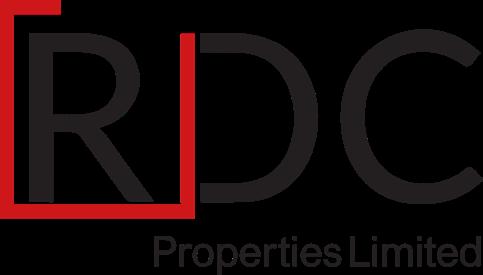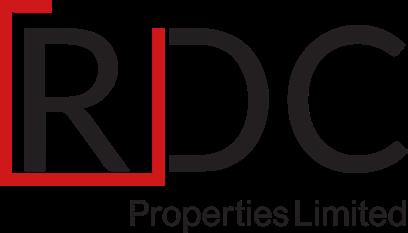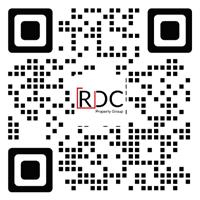








RDC Properties Limited is a pioneering force on Botswana’s real estate scene, with tactical expansion into international markets. Executive Vice Chairman, Guido Giachetti, reflects on the company’s remarkable journey and its commitment to sustainability and community enrichment
Writer: Rachel Carr | Project Manager: Andrew Marjoram
RDC Properties Limited (RDC) stands as a beacon of innovation in Botswana’s bustling real estate landscape.
As RDC has transformed its impressive trajectory into a tale of strategic diversification, it not only shapes the skylines of Botswana but also casts its ambitions across international horizons.
The company was the inaugural property fund listed on the Botswana Stock Exchange (BSE) in 1992 and restructured in 1996 as a variable rate
loan stock (VRLS). It was founded by the Giachetti family, who established and continue to lead RDC Property Group (the Group), a large investment group with a global presence. Guido Giachetti is the Executive Vice Chairman of the Group.
Its origins date back to 1878 as a civil engineering company known for building rail infrastructure, including work on one of the first metro lines in Italy, the Napoli Pozzuoli train station in Naples, in 1916. The family diversified into African construction by investing

in Nigeria in 1961 and Botswana shortly after the country’s independence in 1970.
This strategic expansion paved the way for RDC, a property development company and investment fund which now spans seven countries.
As of 31st December 2024, the investment portfolio had 48 percent of its properties in South Africa (SA), 26 percent in Botswana, 23 percent in Croatia, and the remaining three percent in Zambia, Madagascar, Mozambique, and the US.

“The company’s status as the largest property fund listed on the BSE can be attributed to several key factors and strategies that facilitated its growth, significantly contributing to the country’s economy,” Giachetti proudly introduces.
“This shift from development to acquiring yielding properties catalysed our property fund’s expansion. We diversified into SA in 2017 by investing in Capitalgro, an unlisted property fund, marking our first acquisition of an entire portfolio,
followed by the Tower Property Fund Limited, a listed fund on the Johannesburg Stock Exchange (JSE) in 2021,” he adds.
Presently, 83 percent of income, per the latest financials published, is generated outside of Botswana and repatriated as dividends and interest, diversifying the economy and mitigating risk.
“Geographically expanding
our portfolio creates long-term shareholder value and a more resilient, stronger, and ‘proudly Botswana’ company with global reach,” notes Giachetti.
RDC has diversified its operations, particularly into SA and Europe, as Botswana’s economy is relatively small.
“The country’s real estate market is limited both in terms of the number of potential tenants and available acquisition opportunities without risk of concentration,” he observes.
“RDC’s initial steps outside the country began in Madagascar, where a framework to facilitate larger acquisitions and external investments was established. By expanding geographically and across sectors, we have achieved a balanced mix in our investment portfolio, thus generating revenue from stronger economies.”
This strategy of acquiring the Tower Property Fund has de-risked the portfolio, reducing RDC’s exposure to offices and hospitality facilities in 2021 and introducing some premium crossborder retail assets as well as several growth opportunities in the different sub-sectors.
“Our purpose is to grow shareholder value by owning and managing strategic property assets that enrich the stakeholders and communities we serve.
“Our vision is to be the leading real estate company in Botswana, renowned for its international reach, expertise, innovation, sustainability, integrity, and client-centric approach,” Giachetti sets out.
To this end, the company is pursuing a diversification and growth strategy focused on long-term value through key initiatives.
“In addition to improving our portfolio and taking advantage of its redevelopment potential, we

are targeting the acquisition and redevelopment of safari lodges in prime locations to boost revenue and initiating a joint venture to develop 50 megawatts (MW) of rooftop solar photovoltaic (PV) plants in Croatia, in line with European Union (EU) renewable energy and environmental, social, and governance (ESG) goals,” he details.
Recognising the need for income sources beyond mineral extraction, the Group ventured into the leisure

sector in the early 2000s, starting with the Chobe Marina Lodge in Kasane, Botswana, strategically situated close to Chobe National Park and attracting hard currency-paying tourists.
“When assessing acquisitions, we prioritise robust revenue streams and community contributions, which are significant in leisure and hospitality projects,” Giachetti informs.
Sustainability remains central to RDC’s operating model, investment strategy, and long-term value creation.
“We’ve signed 18 power purchase agreements (PPAs), installing solar PV systems across 54 percent of our gross leasable area (GLA), lowering energy costs and emissions whilst boosting tenant retention. Water monitoring is active on 59 percent of our GLA whilst leak detection and reuse programmes are now in place,” outlines Giachetti.
“With our waste management programmes underway, we aim to reduce landfill dependency and improve recycling rates.”
Guido Giachetti, Executive Vice Chairman: “Our solar programme demonstrates significant financial and operational benefits from targeted sustainability investments. The Westlake Lifestyle Centre in Cape Town, for example, generated over 290,000 kilowatt hours (kWh) of solar power, achieving 89 percent of forecast output and saving nearly ZAR68,000 in March.
“Other successes include Caxton Street, which produced over 30,000kWh of power since January, saving around ZAR36,000, and The Edge in Bellville – nearing 23,000kWh – with nearly 100 percent uptime as peak tariff periods approach.
“We’ve also activated large-scale solar systems at Voortrekker Road in Cape Town, Clifton Place in Durban, and Evagold Centre in Johannesburg, adding over 900kW of renewable capacity.”
This initiative will also enhance energy security – a critical factor in many countries and particularly in SA’s current operating environment.
With 17 percent of the company’s portfolio certified by the Green Building Council South Africa, and high energy performance certificate (EPC) ratings in Croatia, all new developments align with green standards.
RDC views ESG as a responsibility rather than something to merely comply with, enabling long-term resilience, tenant satisfaction, and reputational strength as the company aims to bolster its contributions to this crucial facet of the business.
With robust fundamentals, reduced gearing, and a sharper operational model, RDC is well-positioned for continued performance. The company’s focus remains on disciplined growth and generating long-term value through efficiency, innovation, and strategic asset rotation in 2025.




“Collectively, our sustainability work supports 11 of the UN Sustainable Development Goals (SDGs) – reinforcing our mission to create future-ready properties that deliver for tenants, investors, and communities alike,” Giachetti emphasises.
These efforts are projected to save approximately ZAR4 million annually in energy costs whilst strengthening tenant relationships and meeting global ESG expectations, underscoring the link between sustainability and performance.
RDC not only understands the significance of sustainability but also the importance of community support, highlighting its longstanding commitment to education, community upliftment, and the arts. Since the early 1990s, the organisation has supported and

constructed schools in rural Africa based on the belief that education is crucial for breaking the poverty cycle. As such, it provides financial incentives for primary school graduates and celebrates their achievements with community events.
“We have witnessed many students succeed, including pursuing careers in various fields. We support education and community upliftment in SA, Botswana, Madagascar, and Zambia through initiatives such as the Investec Cape Town
Fair
With over 50 combined years of experience, and multiskilled attorneys, Botlhole Law Group is a premier corporate and commercial law firm based in Gaborone, Botswana. We pride ourselves in offering more than black letter law, we are a futuristic firm providing a ‘one-stop shop’ for valued clients.
• Property Investment Advisory Services
• Commercial law
• Corporate Services
• Financial Services and FinTech Law
• Mining, Energy and Minerals Law
• Technology and Cyber Law
Tel : (+267) 316 7668
Cell : (+267) 73470462
Email: info@botlholelawgroup.co.bw
Website: www.botlholelawgroup.co.bw
• Data Protection and Data Privacy
• Litigation and Debt Collection
• Alternative Dispute Resolution
• Regulatory and Compliance Law
• Employment and Labour Law
• AML/CFT
• ESG
Gaborone: 6th Floor, Exponential Building, Plot 54351, New CBD | Gaborone Maun: Unit 1B1 & Unit 1B2 | Plot 1196, New Mall | Maun



– GUIDO GIACHETTI, EXECUTIVE VICE CHAIRMAN, RDC PROPERTIES LIMITED sponsorship, school prizegiving awards, Mandela Month campaigns, and local lodge engagement,” Giachetti impassions.
In addition, RDC supports local artists through acquisitions, awards, and by displaying its works within its properties, and runs multiple community initiatives each year, including a Christmas project for children and patients in a rural hospital where celebrations were organised and gifts provided to those who might not have family support.
For Giachetti, initiatives like these are deeply fulfilling. The social aspect of ESG represents more than just a checklist; it embodies a genuine commitment to making a lasting and positive impact within the communities, and all members of the Group share in this belief.
“Our initiatives have evolved into a broader framework across our properties, driven by the next generation to identify meaningful
“ULTIMATELY, WE THINK
TRUE SUSTAINABILITY EXTENDS BEYOND GREEN BUILDING PRACTICES TO INCLUDE INITIATIVES FOSTERING COMMUNITY WELL-BEING”



projects as we aim to invest in strategic assets that benefit all,” Giachetti impassions.
“For example, our project at Chobe Marina Lodge employs around 100 people, therefore positively affecting their families and illustrating the importance of community engagement. We prefer investments that impact entire communities rather than those driven purely by profit.”
One of RDC’s upcoming projects is a retirement home in Botswana, which is a novel concept given the traditional family structure typical in the region.
As people move to urban areas, RDC has identified an arising need
for spaces that accommodate senior living, as older adults may feel isolated in cities. This project exemplifies the company’s commitment to social sustainability.
“Ultimately, we think true sustainability extends beyond green building practices to include initiatives fostering community well-being,” he ardently expresses.
When deciding which projects to pursue in property acquisitions and development, RDC carefully evaluates opportunities across the commercial,
residential, and hospitality sectors.
“When analysing acquisitions, we verify the strength of revenue streams and community contributions, and the correlation is particularly strong in leisure and hospitality projects. All developments must align with our strategic objectives and core purpose,” Giachetti declares.
“These include growing net value asset (NAV) by five percent above the consumer price index (CPI), reducing long-term debt to below 40 percent, increasing hard currency revenue to between 40 and 50 percent, and elevating distributions to reach the upper quartile of the BSE property
• Chobe Marina Lodge – a key destination in Botswana’s tourism
In November 2024, a fire destroyed the main building of the lodge, which features 66 suites and attracts visitors to Chobe National Park. A modern rebuild is planned to enhance the guest experience, particularly by leveraging its riverfront location.
Aiming to reopen by mid-next year, the lodge incorporates sustainable practices, reflecting a commitment to environmental responsibility and community support.
• Radisson RED Rosebank – Johannesburg, SA
The Emerging Artist Initiative at Radisson RED Rosebank highlights RDC’s dedication to art in hospitality, emphasising art, music, and culture.
In partnership with Radisson’s brand management, it inspires other initiatives within the Radisson Group. Each year, RDC provides a platform for artists like Prince Gyasi, Tega Tafadzwa, and Prof. Zanele Muholi, and current showcases, including Sam Nhlengethwa, attracting positive public engagement.
Opened in 2021, the Radisson RED Rosebank hotel became a hotspot for contemporary art and is one of SA’s first 5-Star Green Hotels. It updates the art in public areas annually and promotes African artists, winning the LIV Hospitality Design Award in the interior design category in 2022.
• Acquisition of the Tower Property Fund
In 2021, RDC acquired Tower Property Fund Limited, expanding its portfolio in SA and Croatia. This grew its holdings significantly, making it Botswana’s largest BSE-listed property fund by total assets, including prime properties such as the Cape Quarter in Cape Town.
The redeveloped Old Cape Quarter building won the Best Heritage Development award at the 2022 South African Property Owners Association (SAPOA) convention. peers.”
Each business unit – leisure and hospitality, property investments, property management, developments, new investment clusters (renewable energy, silver economy), finance, and mergers and acquisitions (M&A) – has unique supply chain management criteria and faces specific challenges.
However, as RDC looks to the future, its key priorities will focus on strategic growth and adaptability as emerging trends and opportunities shape the real estate industry.
“The wider RDC Property Group is well-positioned to execute its
strategy, with optimism for reduced interest rates fuelling growth. We will maintain a disciplined approach to capital allocation and focus on our medium-term objectives.
“Over the next five years, we foresee significant artificial intelligence (AI) impact on the leisure sector and increased focus on Africa amid macroeconomic uncertainty in the West. We must prepare for expansion across different areas of the African continent, and remain alert to potential corporate actions, leveraging our strong institutional support,” Giachetti resolutely concludes.




Tel: +267 390 1654
rdc@rdc.bw
www.rdcbw.com


